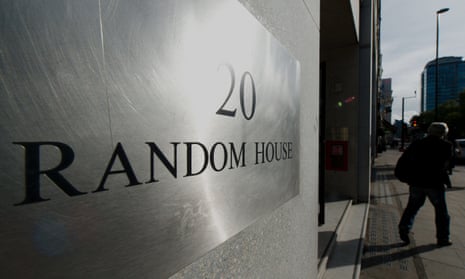Jordan Peterson, the Canadian psychology professor and lobster-loving life coach who came to public attention after refusing to use the preferred pronouns of transgender people, has a new book coming out, and some staff at Penguin Random House Canada, were reportedly not pleased with the company’s decision to publish it. When the publisher announced that it would be bringing out Peterson’s Beyond Order: 12 More Rules for Life (a sequel to his 2018 bestseller 12 Rules for Life), management received dozens of complaints from staff. At a company town hall meeting, some employees were reportedly in tears as they described how Peterson had radicalized people in their lives.
Predictably, the staff who complained were criticized as over-sensitive and excessively woke. The Telegraph suggested that intolerant social justice warriors were trying to censor Peterson. Commentator Maajid Nawaz said that it showed an “insidious danger facing our culture” now that “book publishers want to ban books”. Reason’s Robby Soave said that “militantly woke staffers at these places are determined to suppress viewpoints they disagree with”. I am sure Peterson himself was thrilled, believing it had proven his point about “snowflake” leftists, in addition to bringing exactly the desired advance publicity for his book.
It’s not reasonable to claim that employees who object to publishing Peterson are “censorious”. A publisher is not a Kinkos. Penguin Random House rejects far more books than it accepts, and it does not treat all points of view equally. It does not publish works of Holocaust denial or phrenology. It has standards, and it’s reasonable for employees to argue that Peterson does not meet those standards. After all, he has suggested that gay marriage might be a plot by cultural Marxists, that women wearing makeup in the workplace is “sexually provocative”, that trans women aren’t women because they’re not “capable of having babies”, that women cannot handle truth, and that transgender activists are comparable to mass-murdering Maoists. He peddles debunked scientific theories and dangerously dodgy diets. I have gone through his work myself and shown that he is a crackpot, whose writing is devoid of basic reasoning and full of wild unsubstantiated claims. When Pankaj Mishra wrote a critical review of Peterson’s work in the New York Review of Books, Peterson called Mishra a “prick” and said he’d “slap [Mishra] happily”. The things he says are often false, prejudiced and dangerous. What possible obligation does a publisher have to publish the ravings of bigots?
Believing that a prestigious publisher should not give such a person a contract is not the same as believing that they should be punished for speaking, or that they should not have access to the internet, a printer, or the marketplace. It’s important to make this distinction clear, because many conservative claims about being “censored” actually just amount to demands that their opinions be elevated far beyond their worth – that evidence-free, bigoted speech be given any prestigious platform it demands, with criticism seen as proof that the critics are intolerant. (Andrew Sullivan, for instance, resigned from New York magazine in a huff after his colleagues expressed discomfort about his flirtations with white supremacism and race science. They didn’t demand the magazine stop publishing him, but just being criticized was enough for him to bolt, claiming a hostile environment.)
There is no problem, then, with staff arguing that Peterson’s work is not worth the company’s imprimatur. The real problem is that this doesn’t happen enough, that publishers are amoral and bring out books on the basis of whether they will sell rather than whether they have social value. The staff revolt against Peterson is a very rare instance of a publishing company being criticized on moral grounds for its choices. After all, war criminal Henry Kissinger has published with Penguin Random House and Macmillan. People responsible for the atrocity of the Iraq war like George W Bush and John Bolton have brought books out with major publishers, even though the human toll of their decision-making is far greater than that of Jordan Peterson.
We should hope for more revolts like the one against Peterson, and the one that occurred when Simon & Schuster dropped racist provocateur Milo Yiannopoulos. Of course, there are strategic calculations, because a huge part of the conservative “brand” is the feigning of persecution. If book contracts are canceled, rightwingers will claim that they are being silenced for expressing “disagreement”, when the truth is that private parties are simply declining to financially reward noxious views. The best solution is for publishers to not offer contracts to war criminals and transphobes in the first place, but this is unlikely to occur, because profit-seeking companies find it hard to turn down bestsellers. (We will soon see whether any of the Big 5 publishers can resist the windfall that would come from publishing Donald Trump’s presidential memoir.)
I find the arguments about “censorship” particularly bizarre because I’m a “publisher” myself. I run a small magazine, and every week we get dozens of submissions, most of which we reject. We have conversations all the time about which opinions are worth putting our brand on, and nobody has yet claimed to have been “censored” because their article wasn’t accepted by our publication. If Jordan Peterson or Henry Kissinger submitted an essay, it would be rejected. And yes, it would be because we “disagreed” with the opinion – we don’t publish arguments we find morally debased and poorly reasoned, by people whose views we do not wish to promote as sensible and worth listening to. I’ll fight for the free speech rights of both men, but nobody has a human right to a lucrative book contract without regard for whether their opinions are sound or valuable.
